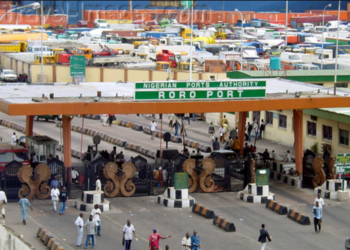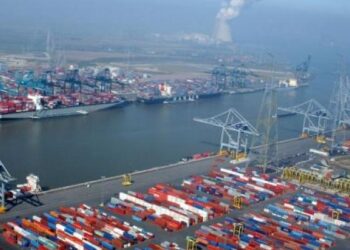The Nigerian Ports Authority has disclosed that it is reducing carbon emissions, stating that it has strategically primed most of its reform initiatives to align with the impacts of the global energy transition.
This was disclosed by the NPA in a social media statement on Tuesday evening.
“NPA is aligning with the global discourse that reduction in the use of heavy hydrocarbons and increasing the use of liquified natural gas in maritime transport could help reduce carbon dioxide emissions & other pollution arising from international trade.”https://t.co/bshf8tKwdv
— Nigerian Ports (@nigerianports) April 6, 2021
READ: Nigeria may soon start shipping containers from Lagos to Onitsha
What they are saying
“Compliance is crucial to the handling of dangerous and hazardous good and products (like gas). As a result, the NPA has strategically primed most of the reform initiatives to align with the impacts of the global energy transition.”
Towards the end of last year, I (NPA MD) signed a directive with strict timelines for full compliance with and enforcement of the International Maritime Organization (IMO) sulphur regulation on Nigerian waterways.”
The new regulations, known as IMO Sulphur Regulations 2020, mandates a maximum sulphur content of 0.5% in marine fuels globally.”
READ: NPA launches Electronic Truck call-up system
The NPA disclosed that the need for change is to reduce the air pollution created in the shipping industry by reducing the sulphur content of the fuels that ships use.
In case you missed it: The Nigerian Ports Authority (NPA) announced the temporary suspension of export receipts at the Lagos Ports Complex and the Tin Can Island Port for a period of 2 weeks which began on March 22, 2021.






















